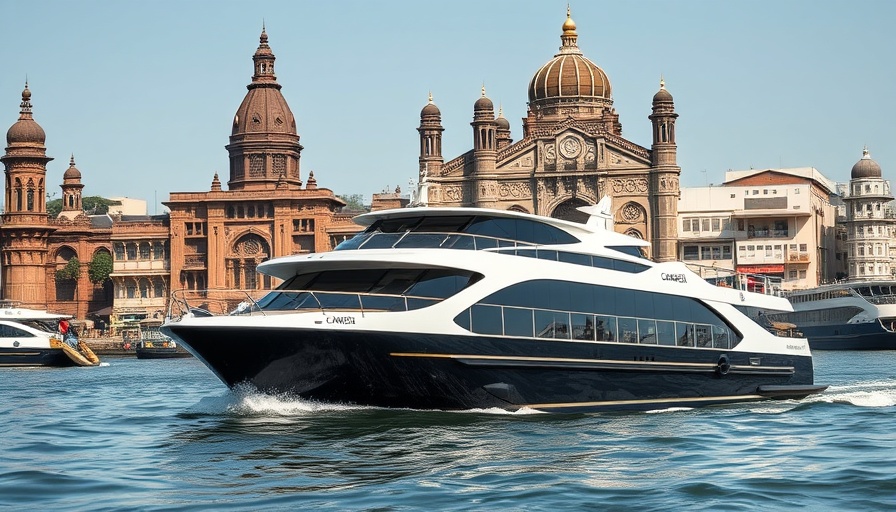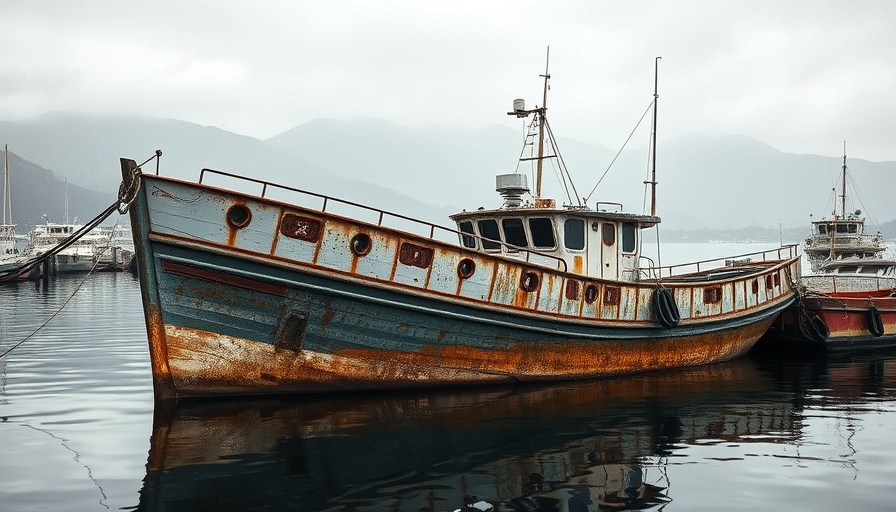
Transforming Mumbai's Water Transport: The JalVimana Initiative
The bustling city of Mumbai, home to over 23 million residents, is poised for a revolution in waterborne transport. JalVimana, a progressive ferry operator based in Mumbai, has made headlines by placing a groundbreaking order with Sweden's Candela Technology AB for 11 hydrofoiling Candela P-12 commuter ferries. This transformative project aims to harness the underutilized waterways of Mumbai, creating efficient and eco-friendly transport links across the megacity.
What's So Special About the Candela P-12?
The Candela P-12 is not just another ferry; it's a technological marvel that represents the future of public transport. These hydrofoiling ferries use innovative computer-guided underwater wings that lift the vessel above the water, allowing it to glide rather than plow through waves. This design significantly reduces energy consumption, eliminates harmful wakes, and dramatically cuts operational costs compared to traditional diesel ferries. With a commitment to sustainability, Candela aims to lead the charge in revolutionizing how cities approach water transport.
Mumbai's Vision for Electric Ferries
According to Maharashtra's government leaders, including Ports Minister Nitesh Rane and Chief Minister Devendra Fadnavis, the goal is clear: to transform Mumbai's waterways into high-speed transport routes while significantly reducing the environmental impact associated with traditional diesel transport. The introduction of electric ferries like the Candela P-12 signals a monumental shift towards a greener future for urban transport systems.
Expected Impact and Future Routes
The initial deployment will see these ferries operate on some of Mumbai's most traveled water routes, including a connection from the iconic Gateway of India to Elephanta Island and Alibaug. Notably, the anticipated route connecting the new airport to central Mumbai could cut travel time from an hour and a half to less than 30 minutes. This is a game-changer for a city known for its congested roadways and lengthy commutes.
A Historical Perspective: Mumbai and Its Waterways
Mumbai, historically a coastal trading hub, has always leveraged its waterways for transportation. However, with urbanization and rapid population growth, these natural assets have been underexploited. By shifting to electric ferries, Mumbai not only taps into its historic maritime roots but also adapts them for modern sustainability goals.
The Innovative Vision of JalVimana
CEO Niraj Thakur has articulated his vision for JalVimana, emphasizing that the P-12 fleet will be the backbone of an electric transport network that could ultimately expand to include thousands of vessels. Thakur describes this project as a "Swedish gift to our ancient shores," a blend of modern technology and India's rich historical narrative.
Connecting Communities and Celebrating Culture
With vibrant routes celebrating Mumbai's cultural and historical landmarks, these ferries will not only reduce travel times but also enhance community connections. Riders can expect a scenic and quiet journey, reinforced by the cutting-edge zero-emission technology that aligns with global sustainability trends. The hope is that by investing in such infrastructure, we will foster a renewed appreciation for the coastal landscapes and urban waterways that define Mumbai.
Preparing for a Sustainable Future
As JalVimana prepares to roll out this pioneering fleet, the implications extend far beyond transportation. By embracing advanced technology, Mumbai positions itself as a leader in global sustainability efforts, igniting a conversation about the importance of clean and efficient waterborne transport systems. As cities around the world grapple with pollution and congestion, the lessons learned from Mumbai's initiatives could serve as a template for other urban centers.
The commitment to hydrofoiling ferries undoubtedly presents myriad opportunities for innovation and economic growth within the maritime sector of Mumbai. With emerging technologies like Candela's and a collaborative approach between local authorities and private enterprises, we can look forward to cleaner, faster, and more reliable commuting options.
As we witness the transformation of Mumbai's transportation landscape, it's an opportune moment to rethink how urban transit systems can integrate clean technologies. The future of travel in Mumbai is not just on land but also on water.
 Add Row
Add Row  Add
Add 




 Add Row
Add Row  Add
Add 

Write A Comment